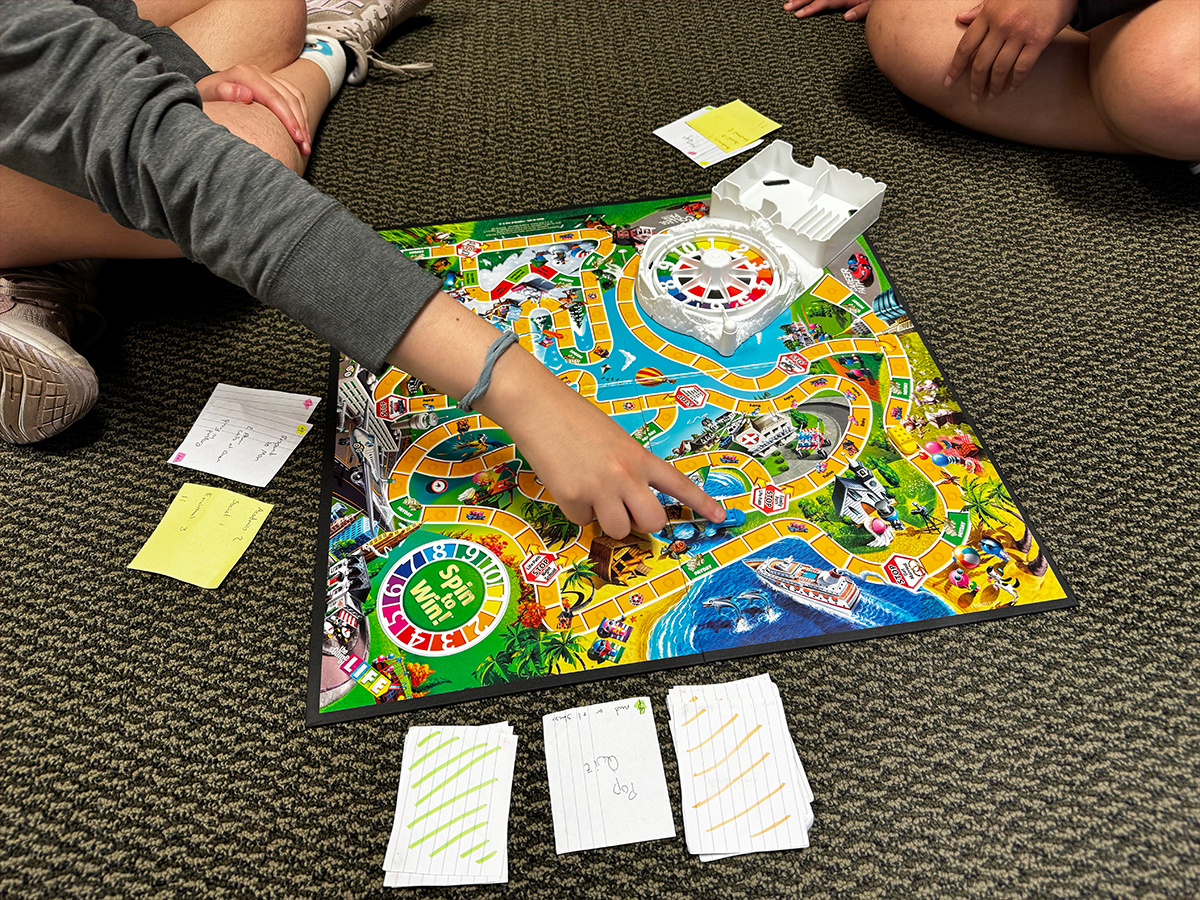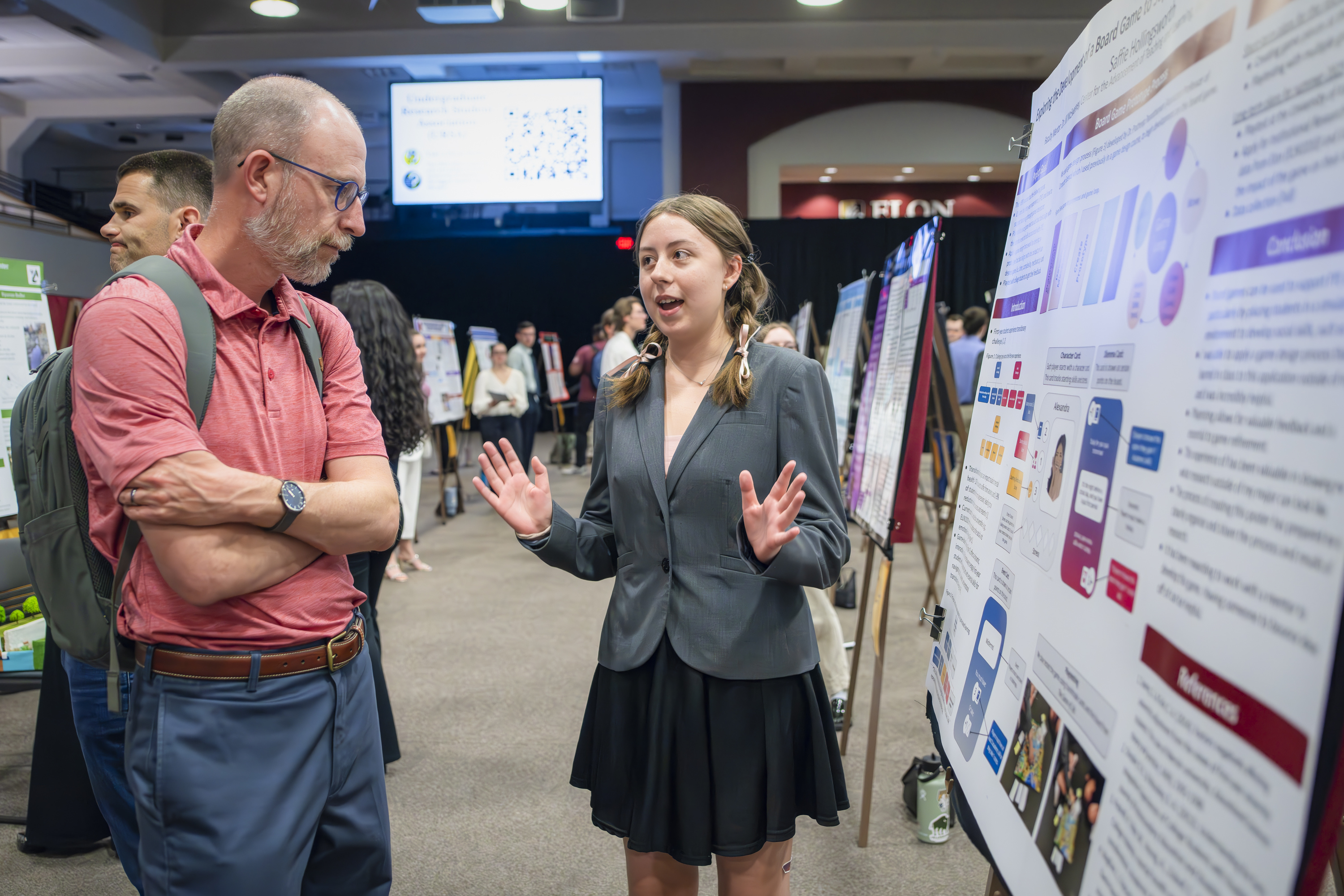To celebrate Elon University’s Spring Undergraduate Research Forum on April 29, Elon is highlighting several students presenting their research at the annual campus tradition.
Saffie Hollingsworth ’27 is all fun and games for her research project, but it’s for a good cause.
Hollingsworth, an Honors Fellow and computer science major, is designing a board game that will help college students manage the transition to university, including handling issues like loneliness and the academic workload.
“As someone who’s at university, I can definitely see people dealing with those issues and (they) can really impact the success of students and the retention of students at university,” said Hollingsworth. “So we’re trying to work towards getting the students to understand what those issues are and have some practice working through them in a safer environment.”
From Burlington, North Carolina, Hollingsworth chose Elon because of the Honors Program and the ability to do undergraduate research. Undergraduate research is one of the five Elon Experiences, which provide a natural extension of the work students do in the classroom and ensure that Elon graduates are prepared for both graduate school and careers.
This project was already underway by Hollingsworth’s mentor Jill McSweeney, assistant professor of wellness, but McSweeney was searching for students interested in board games.
“I’m a board game fan and I took a class on game design as well last semester that I really enjoyed, so I came in from the board game perspective,” Hollingsworth said. “(Professor McSweeney) is a really supportive person and good mentor. It’s been rewarding. I like to have someone to bounce ideas off of and, especially with game development, it’s quite hard to do on your own just because you can’t really tell if the stuff that works for you works for other people.”
The game will be similar to “LIFE” where players will move through the first year of university and progress around the board, hitting different major events. Players will also have skill points (academic, social and emotional) and, as players advance, they gain and lose skills.
“We were doing a lot of reading for that (part of the game) and there’s a few articles we read. There was one big (article) that we used quite prevalently in this whole project that had the issues sorted into those three categories of academic social, emotional. So it was just a good framework,” said Hollingsworth. “The most challenging part is combining the two aspects of transitional issues and board games.”

The game is still in the prototype phase, but Hollingsworth is presenting a poster on the work at the Spring Undergraduate Research Forum on April 29, her second time presenting.
“I’m excited to hear what other people think about our game and our research in general,” she said. “I think some of their contributions would be valuable.”



